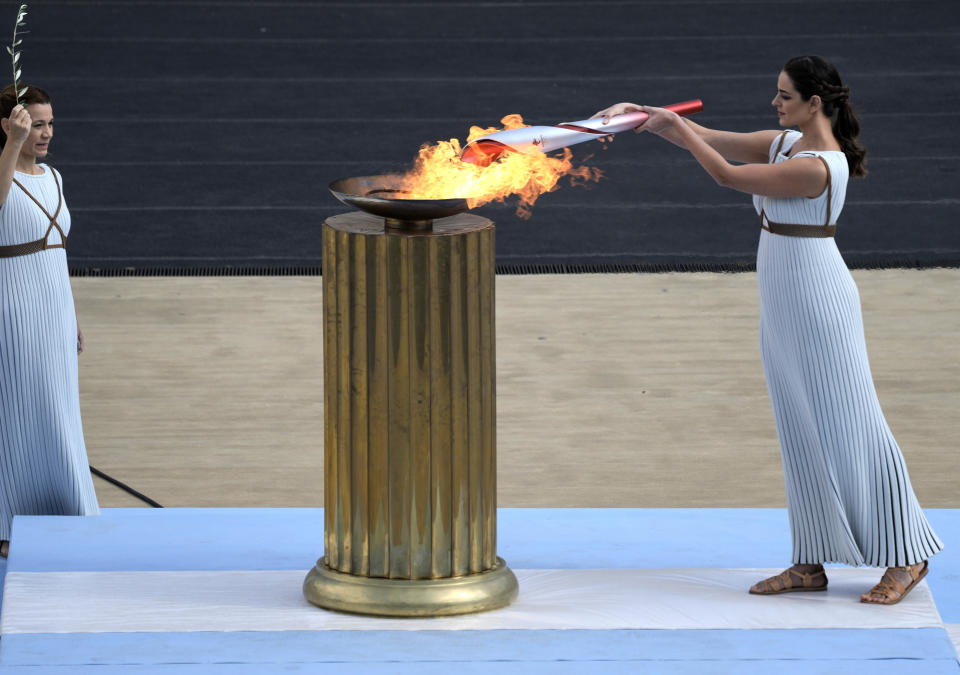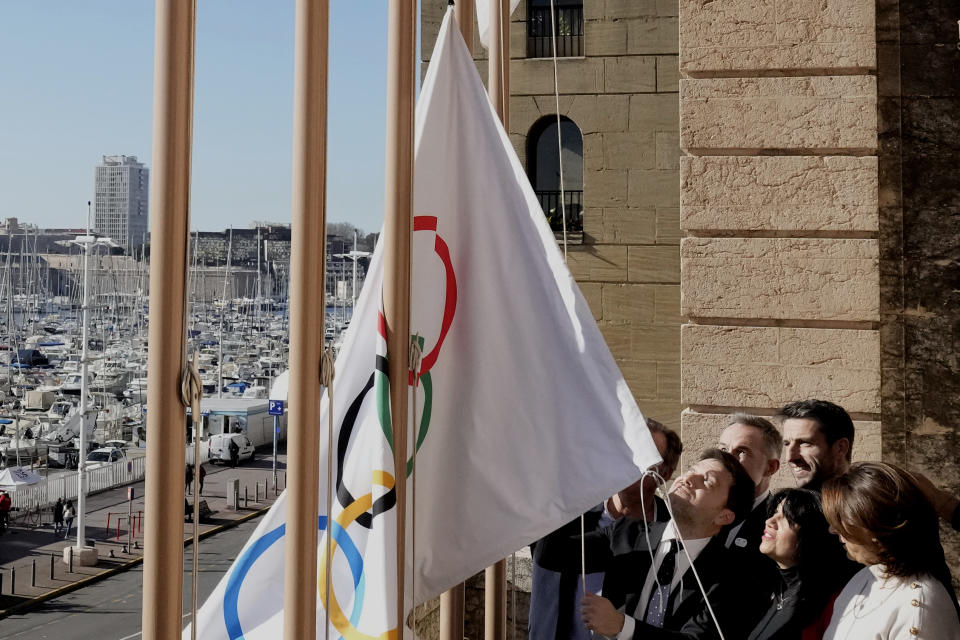Column: IOC talks tough on Russia — until Paris on horizon
The IOC likes to talk tough — as long as it's not heading into an Olympic year.
Not surprisingly, as we draw ever closer to the cash cow that is Paris 2024, the hypocrites running the Olympic movement are eager to get Russia back in the games.
They'll surely find a way, despite Vladimir Putin's brutal invasion of Ukraine and growing threats of a boycott from those who don't think the Russians should be allowed anywhere near the City of Light — even if, ludicrously, the IOC is trying to pass it off as a human rights issue.
Ukrainian president Volodymyr Zelenskyy put it more accurately: "A white or any neutral flag is impossible for Russian athletes. All their flags are stained in blood.”
For once, just once, we'd love to see the International Olympic Committee do the right thing:
Make it clear that the Russians — and their accomplices from Belarus — will not be allowed to compete on the world's biggest sporting stage until they halt the war in Ukraine.
There's certainly precedent for such a decision.
— After World War I, the losing countries — Germany, Austria, Hungary, Bulgaria and Turkey (the successor to the Ottoman Empire) — were barred from the 1920 Olympics in Antwerp. In fact, Germany's ban lasted until 1928.
— The IOC acted in similar fashion against the two nations blamed for igniting World War II. Germany (which had split into two countries) and Japan were prohibited from competing at the 1948 Winter Games in St. Moritz, as well as the Summer Games a few months later in London.
— South Africa was rightfully barred from the Olympics from 1964 through 1988 and kicked out of the IOC altogether for waging war on its own people through its abhorrent apartheid system. Only when white-minority rule collapsed was South Africa allowed to compete again at the Barcelona Games in 1992.
IOC officials maintain that Russia doesn't deserve to be treated like South Africa because it's not under United Nations sanctions.
Of course, that's a disingenuous argument. Russia is a permanent member of the Security Council, which means it has the right to veto any measure. In other words, there is no chance of UN sanctions — which presumably means the Russians could never be barred from the Olympics.
Frankly, Russia should've been kicked out after its massive, state-sponsored doping ring from the 2014 Sochi Winter Games was exposed, not to mention its continued efforts to cover up a level of cheating that hadn't been seen since the notorious East German days.
But the IOC could never muster the courage to pull the trigger on a proper punishment, instead allowing the Russians to compete at the last three Olympics as supposedly neutral athletes known by the ludicrous monikers of OAR (Olympic Athletes from Russia) and ROC (Russian Olympic Committee).
Putin launched his invasion of Ukraine a mere four days after the closing ceremony of the 2022 Beijing Winter Games, a curious sense of timing that may not have been coincidental.
At that point, with the next Olympics nearly 2 1/2 years away, the IOC could lead worldwide sanctions that barred Russian and Belarusian athletes from competing at most international competitions across a wide range of sports.
Those bans largely remain in place, but now the next Olympics are a year closer. The IOC has changed course, looking for a way out to give a pair of warmongering nations a way in.
With its usual double-speak, the IOC said its mission is “to unite the entire world in a peaceful competition.” Instead, its cow-towing to Russia could spark the biggest Olympic boycott since the Cold War era.
Ukraine has raised the possibility of sitting out the Paris Games if the Russians are there. Neighboring countries such as Poland and the Baltic states of Latvia, Lithuania and Estonia have signaled they may be willing to follow that lead.
The United States is highly unlikely to join such a protest, especially after the Jimmy Carter-led boycott of the 1980 Moscow Olympics over the invasion of Afghanistan is largely viewed as a major blunder that left behind lingering bitterness from athletes who missed out on their once-in-a-lifetime opportunity.
The new leader of the U.S. Olympic and Paralympic Committee sent out a letter to athletes and other stakeholders last week, reiterating the organization's support for finding a way for Russian athletes to compete in Paris as neutrals.
“We encouraged the IOC to continue exploring a process that would preserve the existing sanctions, ensuring only neutral athletes who are clean are welcome to compete,” Gene Sykes wrote. “If these conditions of neutrality and safe, clean, and fair competition can be met, we believe the spirit of the Olympic and Paralympic Games can prevail."
If the IOC is determined to clear the way for Russian and Belarusian athletes to compete in Paris, it goes without saying they should only allow those who haven't actively supported the war, though that requirement may pose some challenges of its own.
Going further, it should only be athletes who compete in individual sports, perhaps making them part of the Refugee Team to further dilute any connection to the shameful deeds of their homelands.
Even then, contact sports such as judo and wrestling might also be ruled out to avoid putting athletes in the unenviable position of deciding whether to withdraw rather than grappling with a competitor from Russia or Belarus.
By all means, Russia and Belarus should be barred from any team sports in Paris, since it would be clear which countries those squads were representing no matter the acronym.
There's one athlete who, if reports out of Ukraine are accurate, definitely won't get a chance to compete in Paris next summer.
Volodymyr Androshchuk, a 22-year-old Ukrainian decathlete-turned-soldier, who was killed in recent days while fighting the Russian invaders, according to Anton Gerashchenko, an advisor to Ukraine's minister of internal affairs.
“RIP, Volodymyr,” Gerashchenko tweeted. “We keep losing our best people.”
Your move, IOC.
For once, do your best.
___
Paul Newberry is the national sports columnist for The Associated Press. Write to him at pnewberry(at)ap.org or at https://twitter.com/pnewberry1963
___
AP sports: https://apnews.com/hub/sports and https://twitter.com/AP_Sports

 Yahoo News
Yahoo News 







